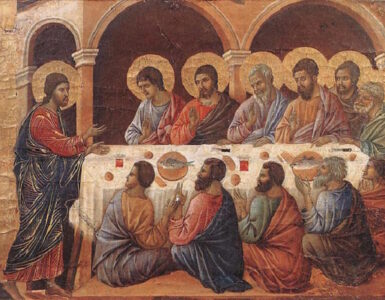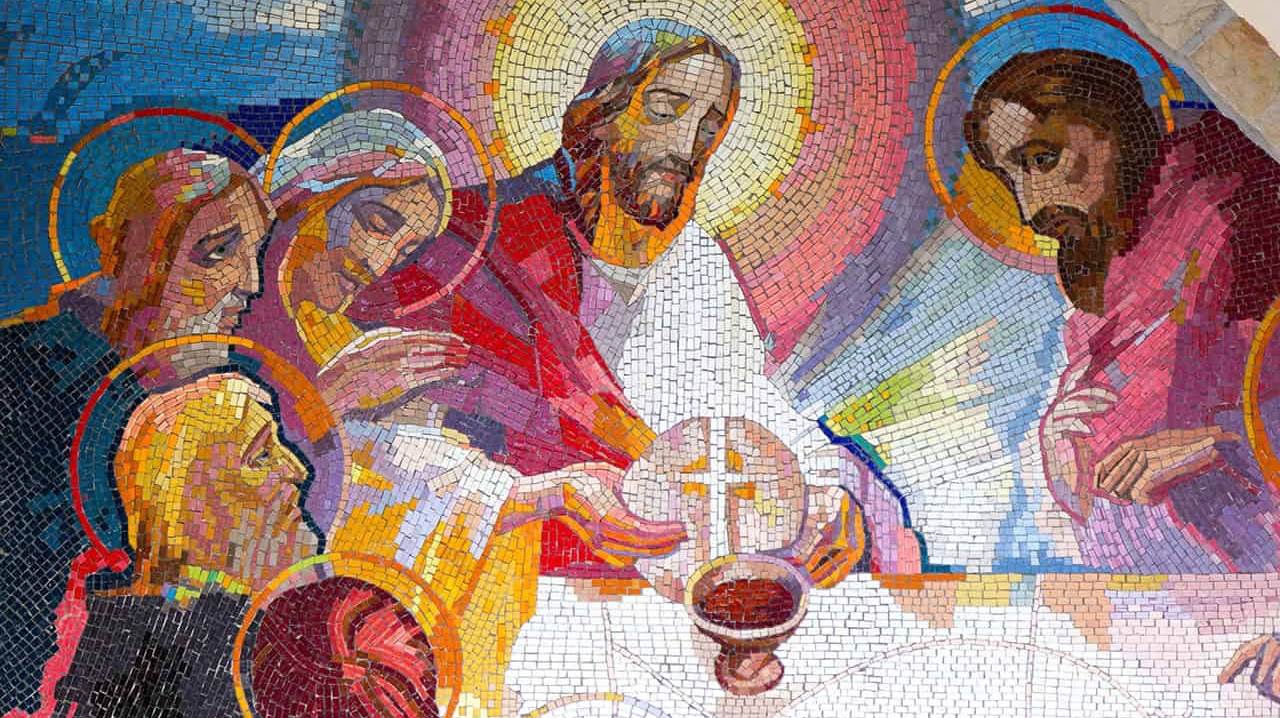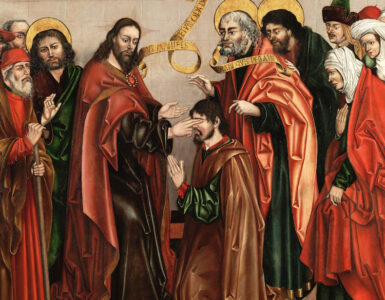A young man in San Francisco named Kevin was involved in what could have been a tragic event—but fortunately his story turned out to have a happy ending. He had been deeply depressed as a teenager, and at the age of eighteen decided to give up on life by jumping off the Golden Gate Bridge. He kept walking back and forth on the bridge’s sidewalk, sobbing in obvious distress; he didn’t really want to kill himself, but saw no way out of his problems. Kevin told himself that if just one person said a kind word or expressed concern for him, he’d take that as a sign that he was supposed to continue living—but of all the people driving or walking by, no one did. Oh, there was one woman who spoke to him—a tourist—but she simply asked him to take her picture; once Kevin did, she continued on, paying him no further attention.
Kevin finally climbed up on the guardrail and jumped from the bridge, falling 220 feet into the water below. Amazingly, he survived, though he was seriously injured. A police boat recovered him, and in the hospital a priest chaplain told him, “You are a miracle—now go out and save lives.” Kevin took these words to heart, and they changed his life; he realized it was his mission to live out the Beatitudes by showing compassion to others who were suffering; because none had been shown to him, he understood first-hand how important this is (William J. Bausch, Once Upon A Gospel, p. 179). Jesus expects and even demands His followers recognize and respond to the needs of those around us; only in this way can we prove to the world, and to Him, that we truly are His disciples.
Many people today seem to think life is like a game of chance: either you’re lucky, or you’re not; furthermore, they believe life is a competition, and they have to put themselves first, at the expense of everyone else, to increase their odds of being successful in a worldly sense. The readings for the Sixth Sunday in Ordinary Time tell us quite emphatically that this approach to life is not only wrong, but spiritually disastrous. Through the prophet Jeremiah, the Lord warns us that those who choose to live only for themselves end up like a lifeless, barren bush in the desert, whereas those who obey and trust in the Lord are like a verdant and healthy tree that bears fruit even under the worst possible conditions. St. Paul applies this dichotomy or contrast to Christian faith. If, from a worldly perspective, we claim Jesus never rose from the dead, then everything we do in His Name is meaningless and a waste of time; only if, through the Holy Spirit, we accept the gift of true faith, do our lives on earth have meaning as a preparation for eternal life. Our values, beliefs, and choices have lasting consequences; our decisions do indeed help determine where we’ll spend eternity. Jesus teaches us in the Gospel—using St. Luke’s version of the Beatitudes—that if we live only for ourselves and ignore the needs of others, a severe judgment awaits us; if our hearts are closed to other people, we are incapable of receiving the divine grace, mercy, and peace we all so desperately need.
A popular priest and author, Father William Bausch, wrote a reflection on how, as a Catholic grade school student, he learned compassion—in regard to Valentine’s Day, birthday parties, and school picnics. He writes, “My mother, like some other mothers, made sure I brought several extra valentines for the unpopular kids. . . My protests, of course, counted for nothing. Mom was not going to let some child get hurt, and I’d better shape up. That, in hindsight, is where I learned the Beatitudes. Like when we had class parties I always had to bring an extra box of cupcakes just in case [my mom said] some other mother was too busy to bake some for their kid to bring. Which meant, as I learned when I grew up, mom knew whose mother was too drunk to bake anything and whose kid would have to arrive empty-handed. Like when I had to invite Gerard, the dirty kid with the ill-fitting clothes, to my birthday party and with the threatening, not-to-be-disobeyed [command], ‘You be nice to him and include him.’ And at the school picnic: ‘You go up and talk to Jack if he’s standing alone by himself and none of the kids will play with him.’ . . . Or when my dad said we would swing around and pick up Kenny in case his dad was busy, knowing all the while that Kenny’s dad was out of work and could not afford to run his old jalopy. Blessed are the poor, the hungry, the weeping, the unemployed, the kids with alcoholic parents, the hated—I learned these Beatitudes firsthand, even though I didn’t know it at the time” (op. cit.).
Fr. Bausch also writes, in regard to Kevin trying to decide whether to jump from the Golden Gate Bridge, “I can hear Jesus say: ‘Woe to you who are rich with life, too rich to rescue another’s. Woe to you who are filled with satisfaction, too filled to share with an empty heart. Woe to you who laugh, too giddy to sense despair and sadness’” (op. cit., p. 180). These imagined words of Jesus are not primarily intended to make us feel guilty or uncomfortable, but to awaken our consciences and inspire us to reach out to others in need. Many people in today’s cold, uncomfortable, quick-to-judge-and-condemn world are lonely and fearful and hurting—even if they try to hide it—and are greatly in need of even the simplest gesture of concern or expression of support. It doesn’t take very much for us to say, “Are you all right? Would you like to talk about it? Is there anything I can do to help?” As Christians, we’re supposed to show those who are suffering that someone does care. Even if we’re not emotionally sensitive, and are slow to pick up on the needs and feelings of others, we can always ask the Holy Spirit to make us more aware of and responsive to the suffering or hurting people around us.
Jesus sometimes asks His followers to do things that might make them a bit uncomfortable, but He never expects the impossible of us; if necessary, He will provide us with the wisdom, strength, and courage needed to minister in His Name to those around us who are suffering, discouraged, or on the verge of losing all hope. The Gospel is meant to be good news for all who accept it, and for all who share it—and if this dynamic is at work in our lives, we are assured of one day sharing in Christ’s glory.






























